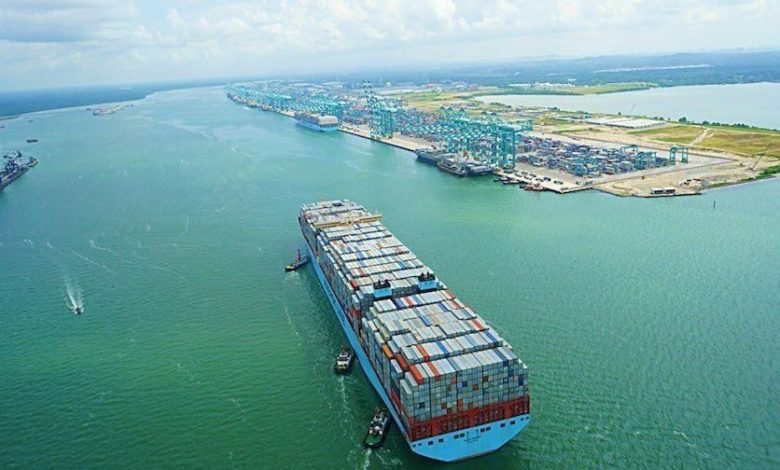DCSA works to standardise just-in-time port calls

The Digital Container Shipping Association (DCSA) today published standard data definitions for port call processes, the first publication of the DCSA Just-in-Time (JIT) Port Call programme.
“By moving container shipping towards a JIT port call process, DCSA port call standards will enable container ships to optimise their steaming speed, thereby lowering fuel consumption and reducing CO2 emissions,” the association, made up of nine top carriers, stated in a release.
Capacity, equipment and staffing can be more accurately estimated and planned
To provide a global industry framework that preserves existing investments, DCSA port call data definitions align with IMO and ITPCO JIT arrival guide standards.
The DCSA Port Call Data Definitions can be freely downloaded from the DCSA website. The definitions will allow carriers, ports and terminals to exchange event data in a uniform way, enabling digital planning and operational optimisation.
“Widespread adoption is the first step towards achieving a digital, global, transparent, just-in-time port call ecosystem,” the association stated.
Subsequent releases of DCSA’s JIT Port Call programme will include API definitions for automating the exchange of event data.
“There are a lot of moving parts and stakeholders that need to work together to enable a JIT port call. With commitments from the world’s top carriers, DCSA’s digital standards are key to enabling this collaboration,” said Erwin Verstaelen, CDIO for Port of Antwerp.
Frank Kho, CEO of TIC4.0 (Terminal Industry Committee 4.0), commented: “With just-in-time port calls, arrival times and berth space can be optimally managed. This means capacity, equipment and staffing can be more accurately estimated and planned.”
“The JIT port call will streamline a number of key processes for industry stakeholders, and it will also benefit the environment,” said Thomas Bagge, CEO of DCSA. “Enabling a vessel to optimise its speed during the voyage to arrive just in time at the Pilot Boarding Place, when berth availability is ensured, will significantly reduce the amount of fuel consumed. Achieving this will require digital collaboration between carriers, ports and terminals. DCSA digital standards play an important role in establishing the harmonious ecosystem that will allow this level of collaboration, and today’s release is the first step towards the creation of that ecosystem.”
